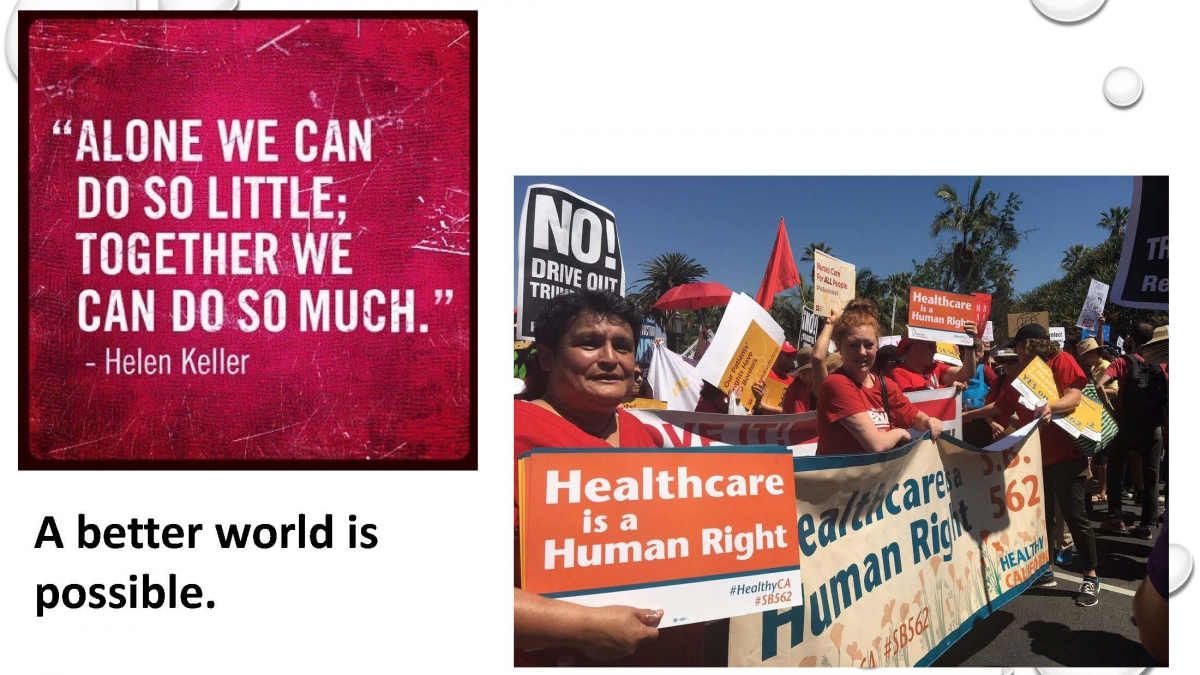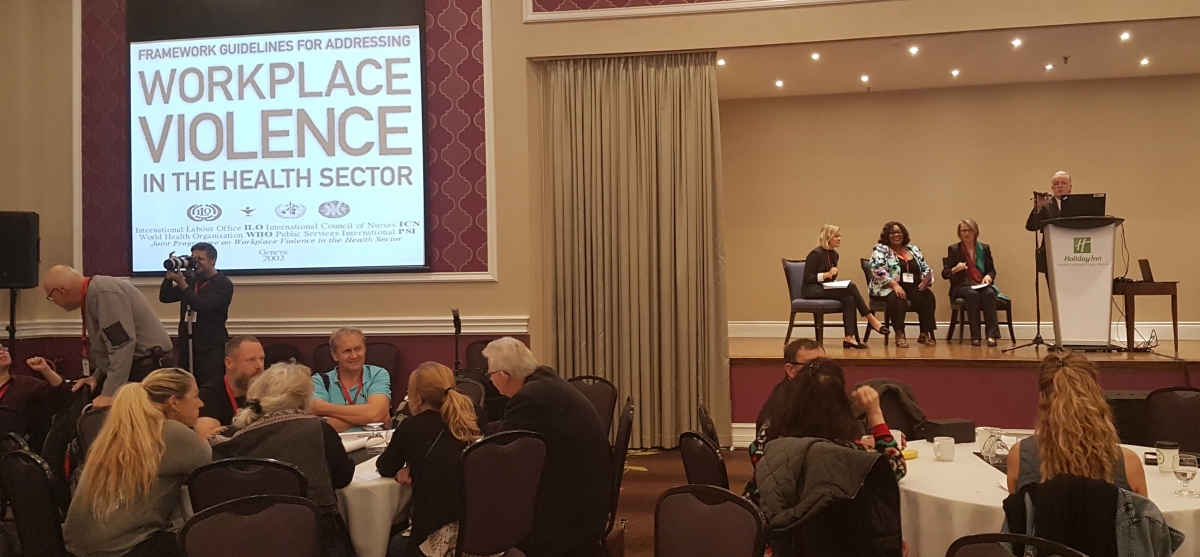A commitment to collective action to eliminate workplace violence in the health sector

The 6th Violence in the Health Sector conference was held in Toronto from October 24 to 26, 2018 on the theme “Advancing the Delivery of Positive Practice”. The conference provided a platform for all parties confronted with the phenomenon of violence in healthcare to develop and implement positive practice and proactively respond to this complex problem. Positive practice is defined here as practice sufficiently informed by capacities and technologies to minimize violence such that the central task of the healthcare service – delivering the best help to its users – can be achieved.

PSI’s involvement in this and the previous five conferences started with the preparation and 2005 publication of the joint ICN, PSI, WHO, ILO training manual “Framework Guidelines for Addressing Workplace Violence in the Health Sector”. PSI serves on the Steering Group, working with other international organisations and Oud Consultancy. The health and social services sector is a key sector for the PSI; 8 million members are in the health workforce. The majority of them are women.
 The conference programme was designed to:
The conference programme was designed to:
- Advance the delivery of positive practice through understanding the causes and patterns of aggression/violence
- Examine initiatives to reduce aggression/violence to advance the delivery of positive practice
- Share resources aiding the advancement and the delivery of positive practice
- Manage the impact/consequences of aggression/violence
Sandra Massiah, sub-regional secretary for the Caribbean, represented Public Services International at the conference and represented the PSI’s positions and statements on:
- An ILO convention backed by a recommendation on ending violence and harassment in the world of work;
- PSI’s Right to Health Campaign: #PublicHealth4all
- Fighting economic injustice and harassment of Lady Health Workers in Pakistan
- PSI’s tax justice campaign

The keynote addresses, parallel sessions, workshops, site visits and networking events provided many opportunities to share information, strategies and lessons learned in tackling violence in the health sector – in developed as well as developing countries. The local organising committee comprising nurses unions in Canada included many trade union allies who shared their efforts in highlighting the increasing instances of violence in the sector as well as the collective action taken to change the status quo.
“As nurses, we reject violence as ‘just part of the job’ and we will be part of the solution!” - CFNU President says Linda Silas in a recent discussion paper by the Canadian Federation of Nurses' Unions (CFNU).
The CFNU is Canada’s national federation of nurses’ unions, representing close to 200,000 frontline care providers and nursing students. “Enough is enough” issues a national Call to Action to provincial and federal governments, employers, unions and frontline nurses themselves to work together to put a stop to violence in healthcare.
In her keynote, Christiane Wiskow, ILO Sector specialist in Health services, shared tools and resources. She highlighted the increasing attacks on health workers in emergencies and conflict situations,
“Violence is a human rights issue and particularly the deliberate targeting of health facilities has drawn attention as it is a violation of international human rights and humanitarian laws.”
The conference ended with a Special interactive plenary session and debate about the current achievements and future required initiatives. PSI used the opportunity to highlight the work of affiliates and especially the updated report “Tackling Violence in the Health Sector - A Trade Union Response”. The study, updated in 2018, integrates the latest achievements of PSI’s affiliates in the health sector.
PSI urged all present to be allies with trade unions in calling on their governments and employers to support the ILO convention and recommendation on ending violence and harassment in the world of work.
References
Proceedings of the 6th Violence in the Health Sector conference “Advancing the Delivery of Positive Practice”, Toronto, Canada 2018
Proceedings of previous conferences
Framework Guidelines for Addressing Workplace Violence in the Health Sector (English, French, Spanish and Russian versions available for download). The Training Manual is a complement to the Framework Guidelines. Taken together they should facilitate dissemination and effective utilisation of the Framework Guidelines. The Manual is intended for a wide range of operators in the health sector, including health personnel, members of professional associations, trade unionists, administrators, managers, trainers, decision makers and practitioners in general.

